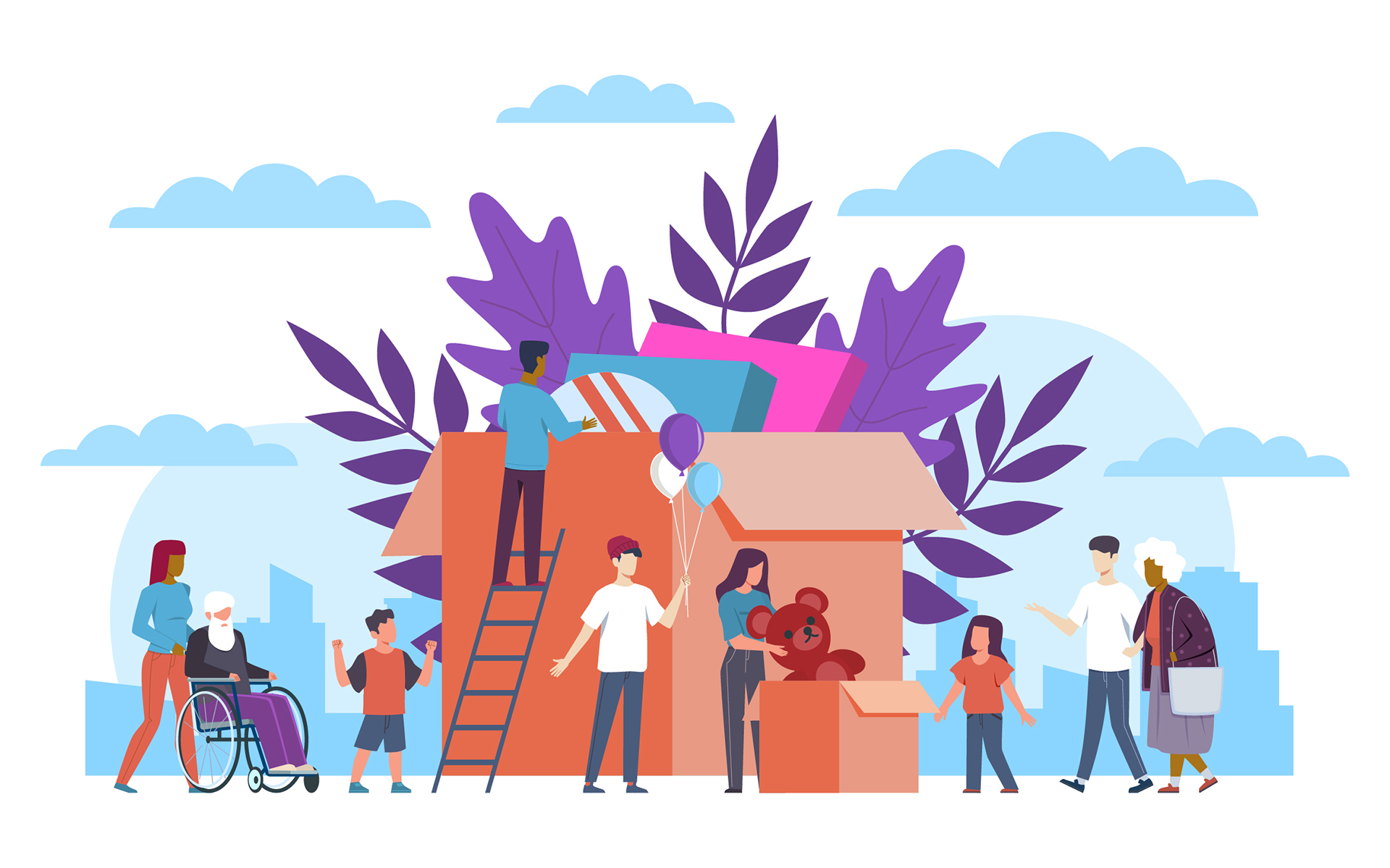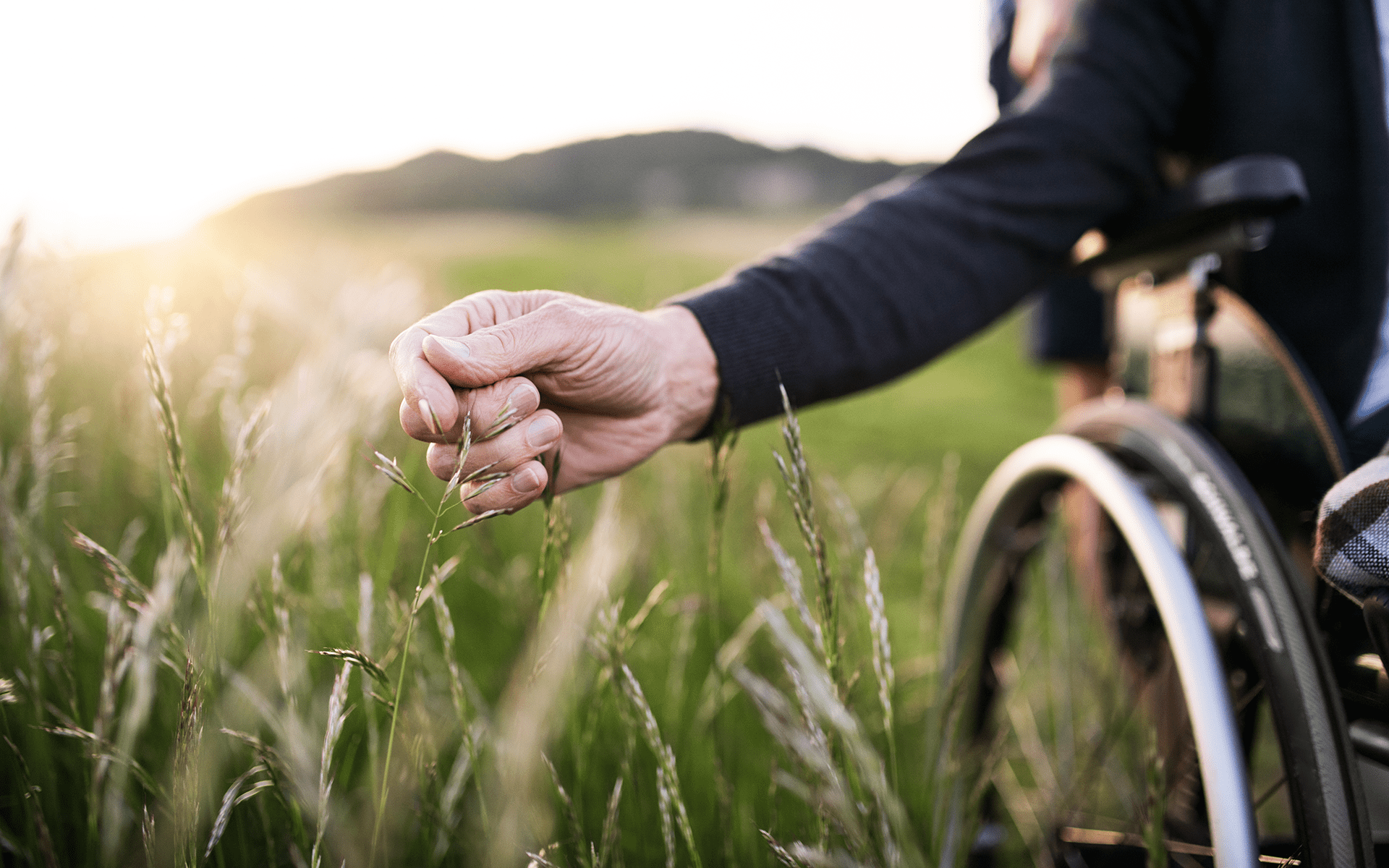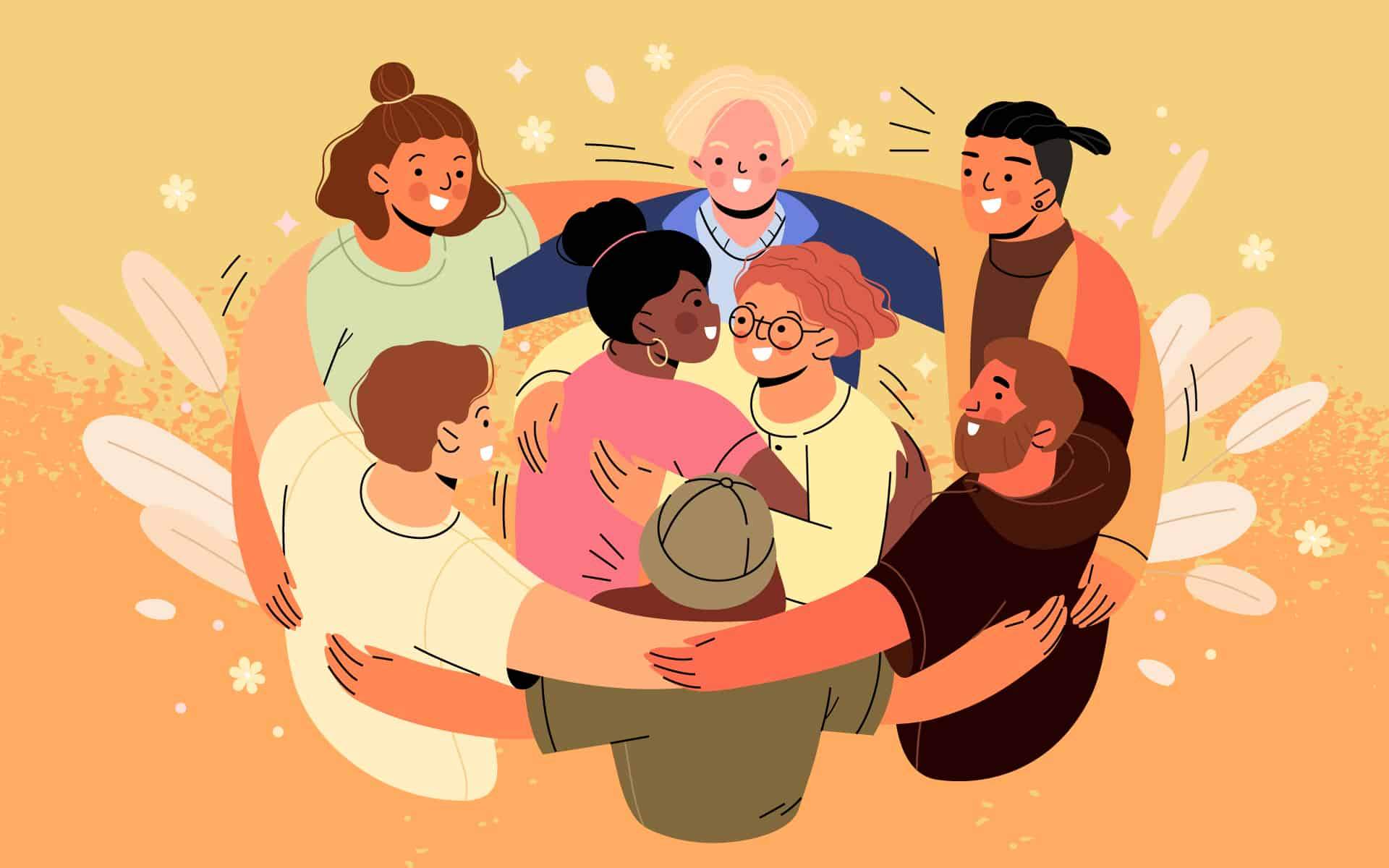When it comes to well-being, relationships might just be the most important practice to master. Just think about what sustains you when life gets rough. Think about what will matter most when you look back on your life. For most of us, the answer is simple. It’s not work, money, or status. It’s the care and connection we share with our friends, family, and coworkers.
In fact, researchers in positive psychology now argue that well-being and relationships work together to create a kind of upward spiral. Healthy relationships sow the seeds of well-being. They strengthen your immune system, allow you to live longer, and make you more resilient to stress. Yet the opposite is also true: Well-being strengthens our relationships. Those who feel healthy, happy, and content in their lives make better friends, coworkers, lovers, and life partners.
While almost everyone already has important relationships, the relationships practice below gives you a new way to think about investing in them. Many of us are poor decision makers when it comes to well-being. We tend to think that success in the form of money, status, and professional advancement leads to well-being. Yet these very pursuits can often have the opposite effect, taking priority away from our most cherished connections.
This practice gives you an evidence-based argument that when it comes to well-being, investing in relationships delivers results. In fact, focusing on relationships is an opportunity to practice and integrate multiple resiliency skills including:
- Gratitude: The next time you spend time with someone important to you, use this as a cue to shift to gratitude. Tell this person what you appreciate most about them. Remind yourself how lucky you are to have someone so amazing in your life.
- Compassion: The next time you are with extended family, use this as a cue to shift to compassion. Instead of paying attention to their quirks or irritating qualities, redirect your focus to empathy and love. Feel what it might be like to walk in their shoes for a day. Be kind, gentle, and open.
- Presence: “Quality time” means being present. Take the opportunity to flex your presence muscles and focus in on the person you are with.
The practice involves building a simple ritual into each week—the Weekly Connection. It might be a date night with your spouse, a walk with a friend, or an outing to an amusement park with your child. It’s a weekly opportunity to tune out the many distractions of modern life and tune in to the people you love.
The Importance of Social Connections
Over the last thirty years, a growing body of research in the field of neuroscience has shown that human interaction, or lack thereof, leads to significant alterations in brain functioning—for better and for worse.
It turns out that social disconnection has the effect of impairing executive functioning, the capacity of the brain to control thoughts and impulses. When we suffer from a lack of healthy relationships, we become more impulsive, more anxious, and less emotionally resilient. These emotional consequences spill over into the physical realm.
Loneliness, says John Cacioppo, a leading neuroscientist on relationships and loneliness, leads to the kinds of impulsive behaviors that, while pleasurable, damage our physical health: eating fatty and sugary foods, drinking in excess, abusing drugs, and not exercising.
Consider whether this is true in your life. When you feel lonely or feel that you lack connection in your life, how does your behavior change? Do you sleep as well? Do you eat differently?
Loneliness and Diminished Well-Being
An experiment conducted by Roy Baumeister offers a shocking illustration of how our behavior changes under these conditions. Baumeister and his research team had a group of volunteer participants mingle with one another. Their task was to find a group of people whom they trusted and respected. Rather than forming groups on the spot, however, participants gave researchers the names of the two people they most wanted to work with following the event.
Baumeister’s team then called the participants back for a follow-up session. In this session, researchers portrayed half of the participants as outcasts. They were told bluntly that nobody chose them. “That’s fine,” they were told, “you can just go ahead and complete the next part of the task alone.” Researchers portrayed the other half as group favorites. They were told that everyone in the room wanted to work with them, but because it was too difficult to assign them to a small group, they would do the task by themselves.
Then researchers brought in a bowl of thirty-five chocolate chip cookies. All the participants were told they would be participating in a “taste test.” They were told they could eat as many cookies as they needed to offer a sound assessment of their flavor.
What happened next? The group “favorites”—those who felt loved and accepted—ate four or five cookies on average. The “outcasts”—those who felt the sting of rejection—ate twice as many cookies. This is one example of how feeling lonely, rejected, or isolated from others can lead to unhealthy behaviors.
The problem is not so much that loneliness itself makes you unhealthy. It’s that the emotions associated with being alone tend to compromise our executive functioning, which in turn sets off a cascade of damaging biological consequences. In fact, Cacioppo’s research points to a direct biological link between loneliness and diminished well-being. In addition to compromising executive functioning, Cacioppo’s team has also found that feeling alone is associated with increased levels of stress hormones. Loneliness the day before, they concluded, is directly correlated with an increase in cortisol levels the next morning. By placing additional stress on the mind and body, feeling lonely has a whole host of other negative effects: increased inflammation, reduced immunity, and increased rates of mortality.
So for those of us interested in living a happier life, the evidence shows that relationships play a pivotal role in cultivating well-being. In fact, the evidence points to a mutually reinforcing connection between relationships and happiness. Positive psychology researcher, Sonja Lyubomirsky observes, “This means that romantic partners and friends make people happy, but it also means that happy people are more likely to acquire lovers and friends.”
How to Cultivate Healthy Relationships
This practice is simple yet profound. It’s a practice we call The Weekly Connection. Each week, set aside quality time devoted to creating or strengthening relationships.
There are many ways to do this. You might set up a regular date night with your spouse. You might set up a regular playdate with your child. Or you might schedule a walk with a close friend. Or you join a community group with people who have similar interests.
The great thing about this practice is that we are essentially giving you an excuse to have fun and connect with others.
Of course, you might be wondering why you need to make this extra effort to connect with your friends and family. The reason is that we tend to prioritize “productive activities” over these times for connection. We spend an extra hour on email instead of playing Legos with our child for 20 minutes. We do our finances instead of having a meaningful conversation with someone we love.
These “productive activities” are extremely important and oftentimes must be done. But The Weekly Connection gives you an occasional break from this habit. It gives permission to shut down the phone, laptop, or TV, and cultivate one of the most important habits for living a happy life: finding connection with the people you love.
The “Weekly Connection” Practice
Since life is busy, it can be a challenge to build the relationships practice into each week. Here are some tips:
- Schedule it on your calendar. At the beginning of each month, take a few minutes to plan weekly opportunities for connection. Schedule time with the most important people in your life or set up a time to meet someone new. Plan a couple of fun outings, organize a shared meal, reach out to those you want to spend time with so they can also make the time.
- Make it a ritual. When possible, set up a recurring connection so it’s easy for everyone to make it happen. Friday night game night for the family, Wednesday morning walks with a friend/neighbor, Saturday date nights, Sunday video chats with parents or grown children.
- Go Device Free. This may be hard at first, but what if you turned our phone off or on do-not-disturb mode during your weekly connection?
- Start Small. Strong connections are about quality, not quantity. Even if you only have 10 or 15 minutes with someone, go for it. And, if you are fully present, those minutes will be more powerful than an hour of distracted or superficial time.
- Savor the time. Stop and appreciate how precious any quality time spent with those you care about really is.
Adapted from Start Here: Master the Lifelong Habit of Wellbeing by Eric Langshur and Nate Klemp, PhD.
read more
A 20-Minute Meditation for Exploring Interconnectedness
Ghylian Bell takes us through a guided meditation that reminds us that we are connected to ourselves and those around us during these challenging times. Read More
Finding Community (Where You Least Expect It)
Even when you feel disconnected, you’re part of something larger than yourself. Your community is not just who you already know—it flows in abundance when you’re in need. Read More
3 Guided Meditations to Deepen Into Loving-Kindness
Loving-kindness meditation can help us to awaken to how connected we all are. You don’t have to like everybody, or agree with everything they do—but you can open up to the possibility of caring for them. Read More











